Podcast: Download (Duration: 41:32 — 38.2MB)
Get Notified Of Future Episodes Apple Podcasts | Spotify | Amazon Music | Android | Blubrry | Gaana | TuneIn | Deezer | Anghami | RSS | More
Podcast highlights:
02:25 – How important really is sleep
04:15 – What science says
06:28 – The mental aspect: Its powerful impact
09:03 – When people are sleep deprived
14:35 – The WORST thing you can do at night
17:30 – How many hours do you need?
18:42 – THIS can lift your mental effectiveness
21:00 – The two “S” allowed in the bedroom
22:32 – The one thing you need to do
24:05 – The right bedroom environment
28:58 – A quick summary
29:44 – Recite this mantra when you go to bed
35:50 – The profound effect of exercise and sports
39:04 – Get more information on this topic
Join our community of business owners and experts inside JamesSchramko
Infographic – Sleep Mistakes:
Transcription:
James: James Schramko here. Welcome back to SuperFastBusiness.com. Today is going to be very interesting. I’ve invited a guest who is actually an expert in sleep coaching. His whole thing is optimizing people’s lives. He does it mentally, physically and emotionally. I’d love to welcome to the call Andre Obradovic.
Andre: Hi, James! How are you and everyone listening?
James: I am great. We can assume that there’s plenty of people who are going to be listening to this episode. That’s because the audio medium is so easy to consume anywhere, anytime. So I actually heard about you through one of my very best clients, who’s a performance coach in a sporting field. He said, “Hey, you have to speak to Andre. He really is talking about the same stuff that I’ve been posting about over the last year or two.”
And just for some context there, I’ve been publishing infographics about sleep. I’ve been passionately saying the opposite to what a lot of marketers out there are saying. I’ve been saying you don’t have to hustle, grind, become an alcoholic or workaholic to make it in business. You actually need to get some sleep. You need to be in a high-performance state. I think that most of success online is going to be mental. That sounds weird but I really think it’s a lot to with mind games and environmental conditioning.
I kind of been in an anti-social media stance in terms of I think that people are not succeeding because they’re so busy consuming that they just get caught up in some almost second life type environment where they’re living vicariously through a screen instead of in real life. You only have to go to a cafe or walk along a boardwalk near the beach where I live and see people are staring at their devices now instead of each other.
So Andre, why don’t you just tell us what your position is on this whole situation regarding where people are at in their work environment, considering that a lot of the people listening to this has something to do with a computer or an online business.
Why sleep is important
Andre: Yeah, great James. Well first of all, thanks for having me on. I really looked forward to this session and helping people optimize their life, because where I stand on sleep, I’m an athlete. So I race triathlon, I run marathons, I’m 50. To be able to do that successfully, you’ve really got to be able to focus on the physical, the mental and the emotional. And a core part of that, which science is now telling us, is sleep.
To put that into context, if you live ’til you’re 90 years old, you actually sleep for 36% of your life, which is like 32%. At a fundamental level, people have to understand that sleep is so important. If you sleep 8 hours a night, you sleep for a third of your life. A lot of people unfortunately think it’s a waste of time. But there’s a reason we’re supposed to sleep, and it’s the most important behavioral experience we do in our life.
So at a fundamental level, when people like I used to throw my sleep away because I thought it was a waste of time, well I was just being absolutely stupid. Sleep is so important for a whole range of things but to me, it’s even more important than nutrition. There’s actually evidence that shows you can actually die from the lack of sleep quicker than you can from the lack of food. So that’s how important it is for a start.
James: Right. And you mentioned earlier that it’s being backed by science. What sort of findings have you come across that have influenced the way you think about sleep?
Andre’s findings
Andre: Well firstly, from a real personal experience, and then we can maybe get into the science. So I worked in high-tech IT. I was in the military for 18 years, where I was constantly sleep deprived. Then I worked in high-tech IT sales all around the world with a beautiful, amazing company called CISCO for 14 years. I was always jet lagged, I was travelling on a plane every second week overseas. All I was focused on was money, and making my bonus and leading a team. That lead to work crazy hours. So I was lucky to get five hours sleep at night.
I put on weight. I got lazy. I was tired when I’d wake up in the morning. I’d find that at 2 in the afternoon, I couldn’t make very good decisions happening because I was in that circadian dip. Over the long term of that sleep deprivation, I got quite sick and very, very in a bad state. So that’s my personal story. Now, I’ve changed that right around in the last couple of years due to my focus on my health and sleep.
From a science perspective, there’s a whole lot of research going on by a range of sciences. One of the areas I’ve been focusing on is a neuro leadership institute, which talks about what your brain does, or what your brain is supposed to do when you’re asleep, but also the effects it has on your health of not getting enough sleep. So typically, the things that we find that happen when we don’t sleep properly is we tend to be more overweight. That’s a major problem. Obesity increases. The chances of having obesity, stress, cardiovascular disease, higher blood pressure, higher glucose in our bodies, which is not good for you, is massive when you don’t get enough sleep.
There’s a whole lot of emerging science but unfortunately, people don’t want to listen to it. That’s sort of from a physical perspective, but there’s a whole mental aspect as well, if you want me to talk a little bit about that.
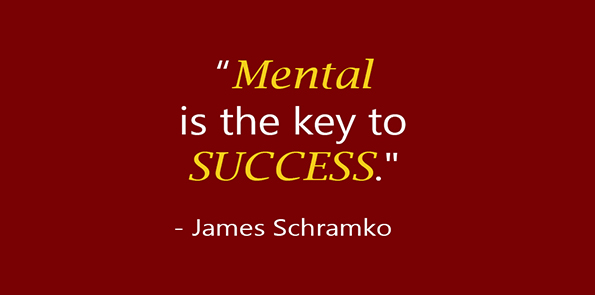 James: Well I do want to talk about mental. I mean optimizing your life is a very broad category. I’ve alluded already that mental is the key to success because I believe like if you are the vehicle that harnesses your brain, then firstly, resting that vehicle, you’ve covered a little bit there the idea that you should get some recharge time.
James: Well I do want to talk about mental. I mean optimizing your life is a very broad category. I’ve alluded already that mental is the key to success because I believe like if you are the vehicle that harnesses your brain, then firstly, resting that vehicle, you’ve covered a little bit there the idea that you should get some recharge time.
Then the brain part, the mental part, I think is tremendously important. What sort of findings have you got there?
Andre: OK. So the important thing is that at night is when our brain actually processes all the things that have happened through the day and that conducts what we call memory consolidation. So as an example, if we ever tried to learn something, a really complex task, the science shows, the study in sleep-deprived people, the ability to learn something that’s cognitively hard is very much reduced. I mean, many of your listeners might have that experience in themselves.
The brain actually, if you learn something today, at night time, what happens is your hippocampus, which is a very important part of your brain; it actually starts to replay those things you’ve learned during the day. It builds stronger neural pathways. They become stronger in your brain, and they’re less likely to fade away if you’re having good sleep, so that you can actually perform that task better the next day.
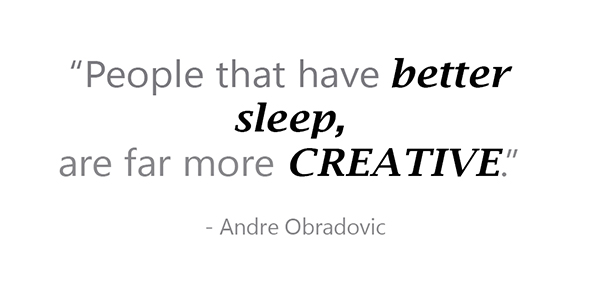 It’s consolidated in your brain and it’s much stronger, mental capability you have around learning as one aspect that also creativity, we find that people that have better sleep are far more creative.
It’s consolidated in your brain and it’s much stronger, mental capability you have around learning as one aspect that also creativity, we find that people that have better sleep are far more creative.
When you’re working in your own business, often you have to think of these great things and have what we call insights. It’s very hard to have insights when you haven’t slept well and your brain isn’t performing in an optimum state.
James: Right. Basically, I notice if I don’t have a good sleep, I feel like I’m very lethargic. In fact, I’d make a note not to make big decisions unless I’ve had a good rest. Turns out that that old time advice, to sleep on something, is actually a good idea. I realized that after reading more books about willpower that we get a reserve of willpower each day and that it’s strongest in the morning and then it depletes during the day. I think that explains why so many people buy crappy domain names at 3 in the morning, when they’ve got no ability to make good decisions.
But is it possible that some adults actually aren’t experiencing a proper sleep, so they never really know what it’s like to be fully recharged?
When people are sleep deprived
Andre: Absolutely, like the stats show us that 60% of people in our country are sleep deprived. Now there’s a real danger there is that as an example in the U.S., they reckon there’s 100,000 accidents on the freeway, driving accidents, because of people who are sleep deprived. They fall asleep when they’re driving. When you look at really big accidents that have happened, both Chernobyl and the Space Shuttle Challenger disasters, they were all found to be due to shift workers that have a loss of vigilance, tiredness, and it’s all attributed to those major disasters that have happened.
So apart from driving and falling asleep, that’s obviously at the far end of the scale, but just not being able to be creative, not being able to make good decisions, that’s the starting point. But it gets a whole lot worse than that. When people get tired, they start to look for stimulants.
So tell me, do you drink coffee James?
James: I do drink coffee, and I like coffee.
Andre: OK, because you get good sleep, because you pay attention to your sleep. I’m assuming you don’t need it in the morning to sort of really fire yourself up and get yourself going, because if you’ve had a good sleep, you’ll be already energized and get out of bed pretty fired up. Is that correct?
James: Yeah, that’s right. I can already wake up very easily without an alarm clock, partly because I go to bed earlier. I actually think focusing on going to bed at a certain time is my secret to waking up early. But the other interesting thing I found is that I can actually have a coffee, even a strong coffee, and then go and have a sleep. I know there are other people like me who can have a caffeine sleep.
If people have bad sleep
Andre: OK. Well I don’t drink coffee at all. So I’ve never sort of experienced that. But the point I’m trying to make here is that if people have bad sleep, the train will crash. Yeah, they’re using a crutch.
James: And they’re sleeping on energy drinks and they’re running low on energy so they start trying to look for sugary things.
Andre: And it’s poison.
James: It is.
Andre: It’s poison. And that’s the thing. So if we have bad sleep, that’s one thing. So it lowers our creativity, lowers our insight, doesn’t help us make good decisions, worst case, we crash our car and kill someone else, or we kill ourselves, and that’s not a problem, because if you’re so stupid, that’s your own problem. If you kill someone else, it’s really bad. But if you don’t do that, the problem people have is often, they will wake up in the morning, they’ll be dying for a coffee to get themselves going.
They won’t make the link between, “Oh, I’m an idiot, I was on my phone until 2 o’clock in bed, and I didn’t get a good night sleep. Now, I need coffee to wake myself up.” They’ll then go and get sugar. So they’ll fill themselves full of sugar, which actually is poison, or carbohydrates, which is worse. So donuts or pastries or muffins or a banana, which people think is a good meal. But a banana or a muffin has 10 teaspoons of sugar in it, and your body only normally has one. Tell me that’s good for you, no. So they prime themselves on sugar, carbohydrates, which then make them gain weight, which is also bad.
Now, the issue with men is, what happens is, there’s a hormone in men called ghrelin, and this stimulates craving. So when we don’t get a good night sleep, we have this metabolic decision to gain weight, and it’s driven by this hormone called ghrelin. In women, for the female listeners, what happens with women is leptin, which is the hormone that tells us when we’ve had enough to eat. That reduces. So it drives men to eat more with this ghrelin, that craving. But with women, their hormone called leptin, actually doesn’t work properly, and it doesn’t allow them to stop eating when they know they’ve had enough.
So creativity, insights, but then, most people that sleep badly are prone to put on weight. And then if that happens over many, many years, by the time we’re 50 or 60, we’ll be significantly overweight, have diabetes and then have obesity. But most people at that age think it’s normal because 80% of the people around them are overweight. A lot of it is driven by bad sleep and that drives insulin resistance, which drives hunger, blood sugar levels and diabetes. So they’re two of the massive problems.
Effects of taking alcohol at night
Let’s talk a bit about what happens at night because you’ve talked about having a routine. Another thing people do is they as you said have stimulants to keep them going at night. So alcohol, energy drinks, coffee at night. Now, you’re lucky that you can actually sleep after you’ve had a coffee.
But alcohol, when you’re having a bad period of sleep, I was in fact coaching someone today around this, can help you get to sleep. But over the long term, and I mean over weeks and months, alcohol is actually a depressant. It stops your brain from performing those neurological memory consolidation and brain processing things that I spoke about that are so important when you want to build insights and creativity. So alcohol is by far the worst thing you can do at night.
The reason it wakes you up or disrupts your sleep is that many of your listeners I guarantee you, at 3 o’clock or 4 o’clock in the morning, if I said do you wake up, what time do you wake up? They’d say, “3 or 4 o’clock.” I guarantee you, 99% of the time, if they go back and look at what they had that night, they would have had alcohol. Your liver starts processing toxins at 3 or 4 o’clock in the morning.
So this client I was coaching today, every time he woke up at 3 o’clock on the sleep report, we do use some analytics. We are using a medical-grade sleep device. Every night in his sleep diary, he had three or four drinks of alcohol. So he’s associating the wake up with the alcohol.
James: It can also dehydrate you, can’t it?
Andre: Yeah absolutely. So most people, when I used to drink, I’d get up at 3 o’clock in the morning, not realizing why. I think, oh I’ve got a full bladder, but I’d go to the toilet and then I’d be dry and I’d need water. So yes, dehydration is a major issue, and you don’t want to be dehydrated at night.
James: I bet a lot of those people have three or four drinks, quote you that some research study that says, “One drink a night is better for you.” You know, for your blood, feeding your blood and relaxing you, reducing stress.
Andre: Yeah. You know who probably paid for that research?
James: A wine company?
Andre: Yeah, absolutely. Just like the ridiculous, healthy food pyramid we have that says you need to eat all of this sugar that’s hidden in carbohydrates. It’s crazy.
James: A lot of kids are sucking down juice, as if that’s healthy for them.
Andre: Yeah.
James: I mean, there is such misinformation. I know when I go to a conference, especially if I go to a conference in North America, and I don’t mean to pick on them, but gosh, a lot of the people in the audience are going to have like a bucket-sized tub of Coke or extraordinarily large bottles of Mountain Dew. I don’t know if they realize just how bad that is for them.
Andre: No, they don’t. I’d admit, I stress when I have to go, I did a New York marathon last year, and I stressed about the food because everything has fructose corn syrup in it.
James: Yeah, it is actually harder to buy food when you’re travelling that part of the world.
Andre: It cost me so much to stay there for a week because I had to go to really good restaurants, and so I want steak, and spinach and broccoli with butter on it. No vegetable oil, no potatoes. Oh no, we’re going off sleep, but it’s all related. This belief that sleep isn’t important; Margaret Thatcher, do you know what she died from?
James: Lack of sleep?
Andre: Absolutely. But she died from lack of sleep because she died with Alzheimer’s and Dementia. Her favorite saying was, “Sleep is for wimps.”
“Sleep is fundamentally important to a healthy life.”
How much hours do you really need?
James: Well, you know there’s a lot of glorification for lack of sleep among entrepreneurs. There’s one guy who keeps quoting that he works 19 hours a day. Is it possible that some people only need four or five hours?
Andre: Maybe at short spurts. But over the long term, they will come crashing down with major health problems.
James: That’s my prediction.
Andre: Adrenal failure, mental problems, depression.
Have power snoozes
James: Oh I think the mental problems have definitely set in the guy I’m thinking of. But no doubt, I think they’ll have an early, physical ending, just because it’s so unhealthy. The other thing that people may not realize is that, well certainly my understanding, is that you can’t just make up for a sleep deprivation by sleeping extra one night after that. It’s like a longer process, isn’t it, for recovery?
Andre: Yeah. Look, from my personal, hard experience was it took me, I had this role where I was working, I was probably getting 4 hours of sleep at night for 14 months. Saturday night, Sunday night included because I couldn’t sleep. I was quite concerned about some things where I’d stress. When I left that role, it took me 12 months to get back my health. 12 months to get back to my health.
What we find is that you can have these power snoozes. So we can make up some minor sleep deprivation on the weekend and lift our mental effectiveness. In fact, the sleep studies we do prove that by, this client I had today, he had some really bad sleep during the week. His mental effectiveness was down to about 83%, but then on Saturday morning and Sunday morning, he had slept until 9 o’clock, and his mental effectiveness came up to like 95%. You don’t want to do that forever.
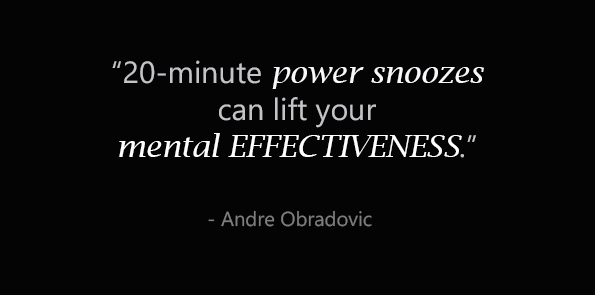 A lot of people, even if they do get OK sleep; they’re still tired on the weekend. There’s nothing wrong with having a little bit of an extra sleep, but also what you can do is have these 20-minutes power snoozes. So there, when I get to my strategies for how you fix your sleep, that’s one of the things I’ll talk about, is you can have these 20-minute power snoozes and they can really lift your mental effectiveness. But you’re right, long term, if you have chronic sleep deprivation over a long period of time, it takes three or four times that sleep deprivation to make it up. So 1 year could take you 2 years to recover.
A lot of people, even if they do get OK sleep; they’re still tired on the weekend. There’s nothing wrong with having a little bit of an extra sleep, but also what you can do is have these 20-minutes power snoozes. So there, when I get to my strategies for how you fix your sleep, that’s one of the things I’ll talk about, is you can have these 20-minute power snoozes and they can really lift your mental effectiveness. But you’re right, long term, if you have chronic sleep deprivation over a long period of time, it takes three or four times that sleep deprivation to make it up. So 1 year could take you 2 years to recover.
James: You know I certainly did that burning the midnight oil while I was sort of closing out my full-time job and working the part-time job on the side for the last 2 ½ years. But the last 6 months, I really felt very unhealthy and knew that I couldn’t sustain it. I was hoping to be able to cut loose from the job at some point, which I managed to do. But people around me were concerned saying, “You can’t keep this up.” I knew I couldn’t keep it up. Saturday would be like a coma. I would just be in bed, couldn’t move. Just trying to top up for the week. Often, I just go into the couch and just fall asleep on the couch after work.
Andre: I remember those days.
James: It’s hard.
Andre: You’re so exhausted; you couldn’t even get to sleep.
“You can’t make up for sleep deprivation by sleeping extra one night.”
No tech in the bedroom
James: These days, I found I tend to wake reasonably early, and I’m pretty active. I walk every day and I surf every day and eat quite well. I usually have a little nap after lunch. And then I go to bed at a reasonable time and there’s no tech in the room. I don’t take any technology to the bedroom.
Andre: Ah… that’s a great point. So, I always get a laugh when I do my talks. I do talks for beyondblue around mental optimization and a few other companies. One of the things I talk about, about sleep, I say, “The bedroom is for two things, and both of them start with S. One of them isn’t social networking.” Right. “It’s for sleep and sex.” Sorry, not being politically correct, but we have a rule in our bedroom, no electronics in the bedroom at all.
James: How bad is it to have electronics in the bedroom?
Andre: Well you know, it comes down to addiction right? I truly believe that there’s two things people get addicted to that screws their sleep, that screws their life and their health. The first one, we’ve done that today, alcohol right, because in our culture here, we think alcohol is great, which is atrocious, in terms of a cultural aspect. But the addiction to electronics, the dopamine addiction. So I can’t turn Facebook off because I want to look at another three likes. It’s an addiction. It’s a mental addiction.
James: People have alerts. It makes *ding* noise, or it vibrates when there’s someone trying to reach them.
Andre: Yeah. So out of the probably 80 people I’ve sleep coached, I reckon I could go back and look at all my notes, probably 85% of them, we fixed their sleep by doing one thing. They go and buy a bloody alarm clock and they leave their stupid iPhone in the kitchen or the bathroom and they turn it off.
“The bedroom isn’t for social networking. It’s for sleep.”
Acknowledge the importance of sleep
It’s so simple but people, they have cognitive dissonance. Firstly is, they don’t acknowledge the importance of sleep. So the one thing people need to take away from this call is sleep is fundamentally important to a healthy life, and performing in business and life. That’s what they have to acknowledge before they can make these changes because at the moment, I would say their behaviors, their values aren’t aligned around their health and the understanding of sleep.
James: I think they also get a lot of justification from these silly infographics talking about all these successful people who don’t get any sleep. There’ll be seven people who don’t get much sleep, and they’re poster children for hustle and grind. There might be billionaires or whatever. But gosh, if you’re going to read some of the exposes on these billionaires, you’d have a different opinion about what success means as well.
Andre: Absolutely.
James: I’m reading a fascinating book at the moment, which sort of reveals the underbelly of one of the famous billionaires, and you’re thinking, gosh, I don’t want to be like that person.
Andre: No.
James: So you should question your assumptions to start with. It’s OK to be someone who likes sleep. I love sleep. It’s one of my favorite things to do actually.
Andre: Oh look, you know, I put sleeping, exercise and food all on the same thing of joy. So when I go to our bedroom, and this is the thing people can think about is having a mindset that sleep is important and enjoying going to bed instead of being hard on yourself to say, “Oh, I shouldn’t go to bed. I’ve got work to do.”
The environment is important as well. We got a really nice bedroom, but we have low lighting, we keep the bedroom cool, and we’re not coming to the bedroom, I look at the bed and next to the bed, I have books. So I read books on neuroscience, on body physiology. Every night, I read, but a real book, not a stupid electronic book. So that’s the other problem people have is I think I’m going to read a book on this Kindle thing or whatever, or the iPad that they love, that they want to have sex with because they can never be apart from it.
So I have my books lined up, and I have my glasses there, people might say I’m old fashioned, but you know, I sleep 7 and ½ hours every night and I’m on the top of my game every day because I take a focus on my bed time at quarter to 10 or 9:30 is my learning time. It’s my learning to learn something new and then to go and have a great sleep. And then I consolidate those memories overnight.
Now that’s a very powerful thing. So I’d say you’re actually being more productive by doing it because you’re consolidating the things you’ve read and learned overnight. So while you’re sleeping, you’re actually learning and being productive. So that’s the way I would be spinning this sort of message about sleep as well.
Visualize
James: The thing that I like to do is visualize. That’s the last thing I can remember is I visualize, often mind surfing, just imagining waves and the board, going up and down the waves, and replaying my favorite wave from the day. Like remembering the day, remembering the meals, remembering the surf, remembering the highlights, like a little showreel.
Andre: Yeah. You could even practice to improve your muscular-neuro connectivity and performance. If you’ve had a really hard surfing move, when you go to bed, you could be practicing that because it uses the same visual, the same part of your brain and the same neural pathways when you physically do it. So not just replay your great, amazing day James, but if there’s some particular surf move that you want to improve, you can replay that specifically while you’re in bed, and then you just do that for 2 or 3 weeks, and you’ll find that the neuromuscular activity will help you perform that better.
James: Well I’m sure that’s how I’m improving gradually.
Andre: Yeah, absolutely.
James: I’ve put as much time on the board in my sleep as I have in real life probably.
Andre: Well that’s what I do when I’m preparing for a triathlon or a marathon. I visualize the race, I have this mantra. Often, I get people that say, “Oh, I’m a bad sleeper.” Well you know what, if you think like that, you’re not going to change it.
James: It’s self-fulfilling prophecy?
Andre: Absolutely. I’m a bad sleeper. Well the first thing you need to do is say, “No. I’m going to walk around the kitchen at night singing. I’m going to have a great sleep.” And you do that for 2 or 3 weeks and then you drop the alcohol or change your habits and your beliefs and it’ll work.
Can I ask James, have you met many people that you know you talk to that when they go to bed, they think about stuff and they ruin the night, and that stops them from going to sleep?
James: Well look, I think a lot of people who I come into contact with especially when I’m coaching, I always have the same fundamental ninja moves to fix them up. It’s always stopping the noise that’s coming into their life. They have all these emails bombarding their inbox. They have a lot of compromise in the form of debt. They’ve tried to take on too many projects at once. They’re trying to learn from a billion people at once. They know everything and they implement very little because they’re consuming and they’re not creating.
So actually, my main job is to find out what people have and then to switch off or remove most of it so that only the important stuff is left. Just like a statue from a block of marble. My goal is to just see what’s sitting in there and get rid of all the noise and the mess. It will be very common that they’ve got so much going on their mind that they would classify themselves in a position of overload or overwhelm.
Andre: Yeah. So that’s the third thing in the sleep. So the two addictions, the dopamine addiction, the alcohol, and then the last one is they store patterns around rumination. So can I share one way that…
Quick summary
James: Yeah. I was going to ask you if you fixed up 80 people at least, I’d love the short list, and I think we’re working our way through it so far. We’ve got alcohol, dopamine from devices and alerts, we’ve talked about the sleeping environment and how you can condition that to be what you’ve talked about. We’ve talked about going to bed at appropriate time. We talked about making sleep fun and to be almost proud of having a good sleep rather than too scared to admit in a circle of business friends that you actually get sleep. Oh my goodness, you’re going to be such a failure because you’re not hustling and grinding and you don’t have deep, black eye sockets.
I think we’ve covered a lot of that and you could actually reduce your chances of major illnesses. We’ve also talked about sugary drinks and poisonous type of foods, and we’ve talked about caffeine. So that’s what I got so far. Let’s go for gold. What else have you got?
Rumination
Andre: All right. So I’d say the last one, if there was one thing would be this rumination. So you go to bed, and you know, I’ve lived this right? And now I don’t. Now my sleep is perfect. So you go to bed, you’re thinking about, “Oh, I’ve got this meeting tomorrow,” or “I’ve got this prick at work that I have to work with.” I’m a bit colorful with my language, sorry guys. But you know, so there’s one thing you can do.
Firstly, you can build this belief, you can build this habit that you can say to yourself before you go into bed, firstly, “I’m going to have a good sleep. I am a good sleeper. I am going to love my sleep tonight.” So building some mantras but then the next thing you add in is you get this thought coming into your head, you picture putting that thought into a box and you tie a ribbon on the box like a Christmas present and you picture yourself putting that in your work bag or your car.
You know, if you take a backpack to work or you put it in your office, and you picture yourself putting that thought in a sentence into the box, you put it in your bag, that’s not in your bedroom. So you have your work bag in the kitchen or at the front door and you picture putting that thought away, and you say to yourself, “Now is my time for sleep. I’m going to sleep. I’m going to have a great sleep. In the morning, it’s my intention to open the box and work out whatever’s in the box.”
That can have such a powerful impact on your sleep and your mind. It doesn’t happen the first time. You’ve got to build this habit, and it’s a new habit to tell the thought to go away. If you do that every time you get this thought coming into your head that’s keeping you awake at night, over time, you build the new, stronger neural pathway that focuses on sleep and puts that thought away. It can be very powerful if you do that and you practice it.
James: That sounds like a great idea. I must be doing something similar. I actually have a whiteboard in my office. I just park things on that. If I want to get it out of my head, I just park it on my whiteboard and then I just let it go. I don’t have to worry about it or think about it because I know I could go and get it. It’ll be like downloading something of your computer onto an external hard drive, and knowing that it’s there to get if you want, but you’ve got all that processing of memory capacity now because it’s not getting in your way all the time.
Andre: Yeah. Another thing one of my clients does, he pictures a USB. So before he finishes work in the office or at night, he sits at his desk and he gets his USB and he plugs it into the computer, and then he says, “I’m shifting everything in my head to the computer,” and then he pulls the USB out of the computer, not that he’s changing any files. It’s just this thing he does. He thinks that the computer is his brain and he’s pulled everything he needs for work out on a USB and he puts the USB on the side of his desk and he says, “I’m going to come back to this tomorrow.”
I mean it might sound a bit weird but your analogy is absolutely perfect that you want to let your brain stop processing work and you want to do visualizing it at night to broaden your pathways, and that’s another great way that you do it but with a big whiteboard. I’ve got a messy glass board in my office, where I do a similar thing, where I go up and look at that after dinner. I say, “This is what I’ve got on tomorrow. These are my most important things I get tomorrow. I’m organized for tomorrow. Therefore now, I’m going to shut the door and I’m going to focus on having a great sleep tonight.” It really works.
James: Yeah. I actually grabbed four different colored pens the other day and I wrote things down in different categories. I wrote down like life things that I’m focusing on, business things that I’m focusing on, team things that I’m focusing on, and then travel things that I’m focusing on. I just wrote down what was in my head and I set them free and then I let them go. I would actually have to go into my whiteboard to see what they are because I really couldn’t recall them right now because they’re not important and I think I leaned a bit on two things to develop that. One was the, I think it was the Einstein thing, where he said, you don’t have to remember, you just got to know where to look it up.
Andre: Exactly.
James: And the other one was the idea that you get from meditation, where the whole point is to let go and to have nothing there. To set it all free. That’s helpful. So let’s see, do you think we’ve missed anything in our discussion here that someone listening might find useful if they’re not sleeping well? I think we’ve covered some ideas on how they could. I think we’ve explained why it’s so important. We’ve given some very practical information. We’ve put forward a counter point of view to some people in the market who insist that you have to work your butt off and that time is the only thing that you can control so you better, you basically, “If you snooze, you’ll lose,” I think is one of the other expressions that come out there.
But then when I look at all of the people saying these quotes, I don’t respect them at all, whether they’re billionaires or very successful in their field. I think they have deep flaws that will come to bite the in the ass one day.
Final thoughts
Andre: Umm. Absolutely, they will. Life is not all about money or position. I have this belief that life is about you being the best person you can be in whatever you do, and that’s not about how much money you earn or what you have. It’s about your health, how you contribute to other people, how you contribute to society and where you want to be in 5, or 10, or 20 years. What do you want to be saying when you’re 80, sitting in front of the sunset? You want to be sitting there with diabetes or obesity or cancer; or do you want to be sitting there, relaxed, maybe not have this fancy house or as many social connections but being healthy. You only have one body and one mind, and you’re right on the target James, when you say what you’re going to say.
James: We kind of skirted around the edges, but how important is exercise or sport, or doing something that you’re just crazy about? Like for me, it’s surfing. I just want to surf every day. That’s what makes me excited to get out of bed every day. I want to go and check the conditions and paddle out there in my boardshorts and ride some energy from the ocean. Do you have something like that and is it helpful for people who want to be fulfilled and just sleep better?
The benefits of exercise
Andre: Yeah well, exercise has a profound effect. There’s a lot of studies that have been done around a hormone called BDHF, and it’s a growth hormone, and it reduces the impact of sugar on the brain, which is a big part of Alzheimer’s and Dementia. So they’ve done these meta studies and analyses that show over multiple years that older people that exercise, the function of their brain is enhanced and the protein and membranes that are formed from sugar in their brain, which cause Dementia and Alzheimer’s are halved by people, even elderly people in nursing homes, just getting up and walking for 45 minutes a day.
So you don’t have to be crazy like me and train for 20 hours a week as an athlete. Just getting up and exercising or surfing, or walking or bike riding makes you sharper every day. The theory is the best time to do it is in the morning because that’s when you’re on the top of your game. It gives you intention to get out of bed and not hit the snooze button, and go and start your day by increasing those hormones and your activity, which drives mental function absolutely.
James: Yeah. There you go. Simply just walking a little bit. I actually installed an app on my phone called Pacer, and it just sits there in the background and measures how many steps I take. I don’t have to do anything. I just got to carry my phone around, which I do most of the time. Although, I must admit, today I went to a cafe and I just left my phone at home.
Andre: How good did that feel?
James: Well I do it regularly. I’m at an advanced stage of not being connected to devices. People know they might ring my phone and I’ll probably get a message and maybe call them back the next day. I’m not dependent on being connected in real time.
Andre: Well I don’t put my mobile number on my website. I have a desk phone.
James: I don’t mind people ringing me. I don’t have to answer it. That’s all. I don’t take it with me when I’m surfing. There’s a lot of time that I don’t have access to a phone or that I’m not dependent on it. I’m fine with that. I’ve learned to be OK keeping myself company or doing things that don’t require my fingers moving on a text pad. I think that’s really my big wish for someone listening to this. I just don’t think people in my peer group understand how addicted to social media and devices that they actually are. I think it’s the undoing of them having a rich and full life. I’d love people to make a change as a result of this episode.
Get more information on this topic
Of course, you’ve got more information Andre at andreobradovic.com.
Andre: I do. My sleeping programs are there. In fact, for your listeners, if anyone wants to do a sleep program, there’s a special deal for them that I’ll provide. All the information is on there. They can download the PDF. I’m happy to offer a 20-minute coaching session to anyone that subscribes to my blog. That’s on the website if you go on there and fill out your details as well. And yeah, I’d love to be able to help some of your clients around all of these aspects and help make them more successful and happier. Just like you are because you seem like you’re on absolute top of your game, you’ve got a good balance, and that’s how we all really should be living our lives, you know.
James: Yeah. It’s taken me a while to get to this point. I’ve certainly been on the other side of the spectrum. So I’m definitely a convert. I can’t see myself changing back ever. At this age in my life, I’ve got the most energy, I feel the most mentally aware, I’ve got fitness and health, I’m satisfied with the work that I’m doing. Life’s really good from that physical, emotional, mental perspective. So I’m a huge fan of what you’re talking about there.
Andre: That’s it.
James: That’s a great offer there. You could have a discussion with Andre if you’re interested in finding more about this. If you have a problem with it and you need some help, that’ll be a great place to go. I really treat this podcast like a community service announcement. Look after yourself, because if you don’t look after yourself, no one else really will, as much as you can take responsibility for your own well-being. So thank you so much for sharing on this episode Andre.
Andre: Thanks for having me. I really enjoyed the chat. Hopefully people will benefit in some way. Love to talk to you again James and catch up with you some time for a surf if you can teach me maybe.
James: Yeah. I’m probably not a great instructor; however, I’m happy to give it a shot. Good luck in your next triathlon.
Andre: OK. Thanks mate!
Get targeted business coaching when you join JamesSchramko membership
Enjoyed the episode? Subscribe to the podcast on iTunes
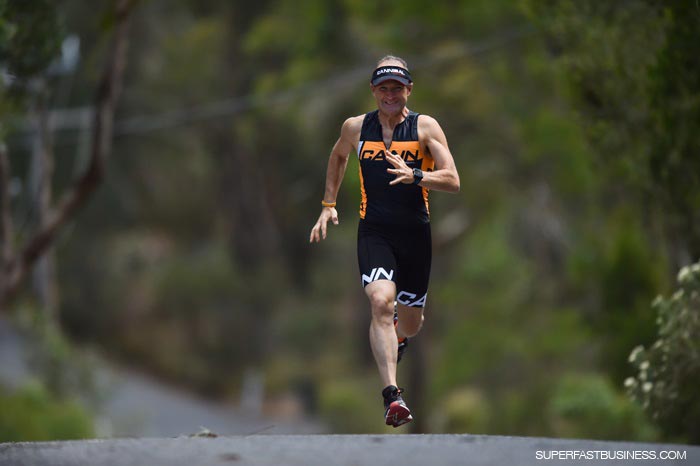
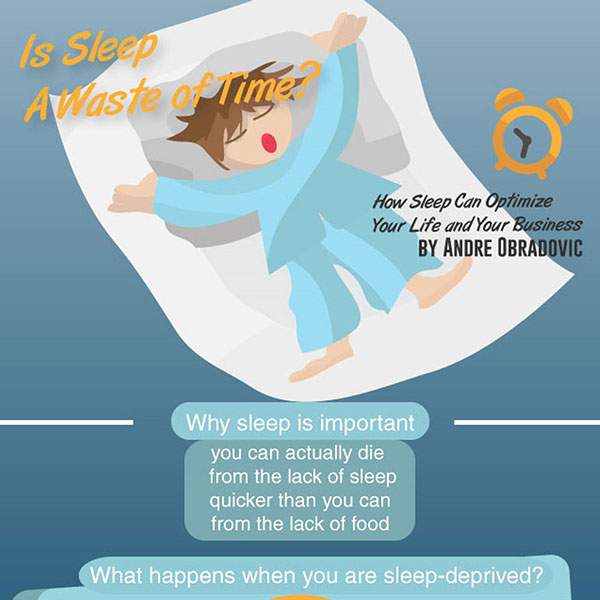


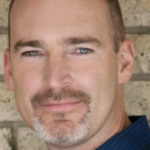






Excellent episode around an important message. Particularly enjoyed Andre’s unapologetic approach.
Thank you Garrick!
Excellent episode around an important message. Particularly enjoyed Andre’s unapologetic approach.